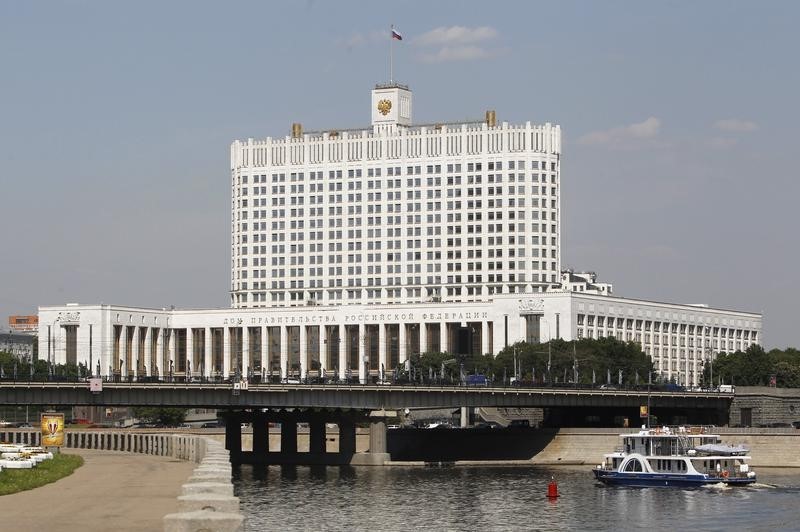MOSCOW (Reuters) - Russia's lower house of parliament passed a draft law that would give the banking sector a capital boost of up to 1 trillion rubles ($16.5 billion) on Friday, part of measures to shield banks from Western economic sanctions.
Russia's financial sector is reeling from the country's slide toward recession and Western sanctions over the Ukraine crisis that have restricted banks' access to international capital markets, driving their funding costs sharply higher.
The State Duma said on its website it had passed the bill in all three required readings - speeding up a process which can sometimes see laws languish in parliament for weeks.
Finance Minister Anton Siluanov told reporters on Friday banks could start receiving the additional capital early next year and that the law would cover all the risks banks face.
The draft law still needs to be passed by the upper house of parliament and then signed into law by President Vladimir Putin.
The latest aid package for banks comes after the government provided state support in the form of additional capital to banks including VTB (MM:VTBR) earlier this year.
The central bank also eased regulation of the banking sector earlier this week as part of measures to stabilize the ruble <RUB=>, which is down some 45 percent against the dollar this year.
The draft law does not clarify which banks could benefit, but a similar means of supporting banks was a backup option in the 2008/09 global financial crisis.
Siluanov said the banks that would benefit would be selected based on the importance of the role they play in lending to the wider economy.
Top lender Sberbank (MM:SBER) would not receive additional capital as part of the measures, according to the head of the State Duma's financial markets committee. Sberbank could however receive additional capital from the central bank if needed.
(Reporting by Elena Fabrichnaya and Alexander Winning; Editing by Elizabeth Piper)
